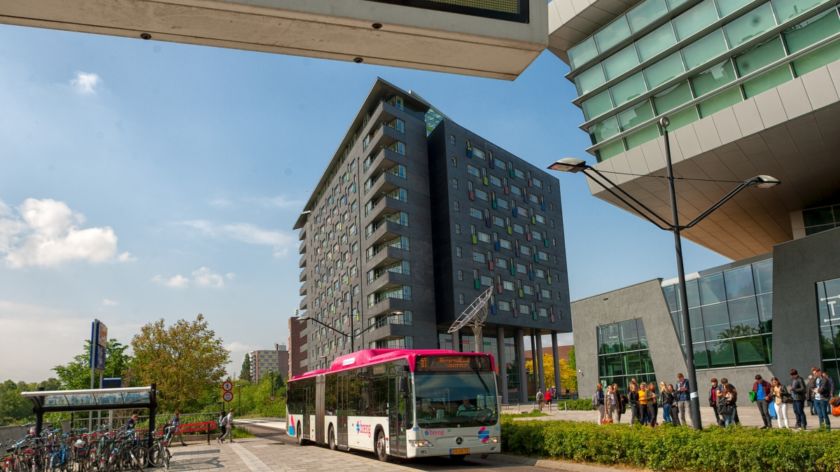-
 SSH&-complex de Gouverneur. Foto: Dick van Aalst.
SSH&-complex de Gouverneur. Foto: Dick van Aalst.
The prices for gas and electricity have exploded these last few months. Still, SSH& tenants don’t have to worry about an extreme increase of their service costs. In fact, tenants living in individual housing units are going to pay less.
While a cubic meter of gas didn’t even cost 1 euro half a year ago, you now pay almost double. Because of this, many households now pay tens of or even a hundred euros extra each month.
Students renting a room with SSH& seem to stay ahead of the storm: they’re only going to pay less than 10 euros extra each month this year, manager of Strategy & Living Marco Schoof expects.
‘We have had some calculations performed,’ Schoof says on the phone. ‘Residents of non-individual housing units are going to pay an average of 15 to 25 percent more for their energy. That is about 6 euros per month.’ The increase is lower than what SSH& expected last October. In fact, residents of individual housing units are going to pay less, according to SSH&.
Collective buy-in
That the financial damage is not so bad, has multiple causes, says Schoofs. For one, SSH& buys all her energy collectively, via an organisation that does this for multiple housing corporations. Because of that, they can negotiate for better prices than individuals.
Furthermore, students profit from the different compensation regulations the government announced last Fall. It might even happen that some students’ energy costs will go down. These are strictly average figures, says Schoofs. ‘The situation might differ per housing complex.’
Sterrenbosch
Partly to keep the energy costs somewhat manageable on the long term, SSH& has been investing in making their housing complexes more sustainable for years. Many of their buildings have solar panels, have received better insulation, or have been taken off the gas network completely, such as Tilde. This Summer, Sterrenbosch, a student housing complex on campus, will be connected to the heating network of Radboud University. Schoofs: ‘The hope is that we will only need to help with the heating during peak times.’



